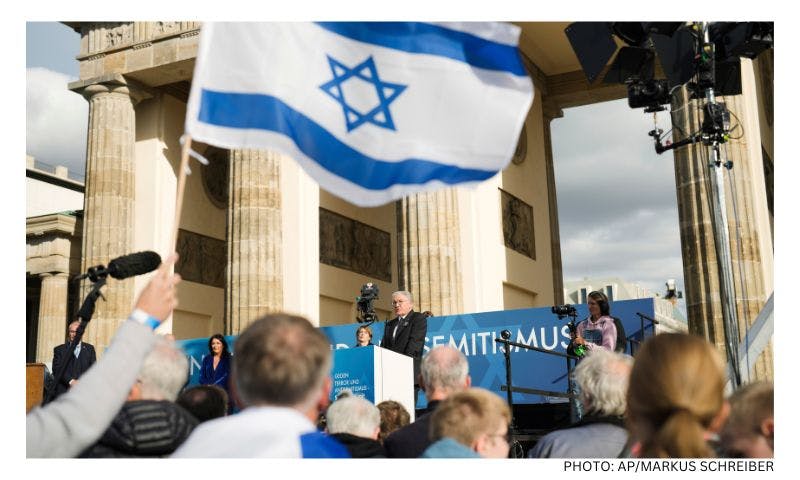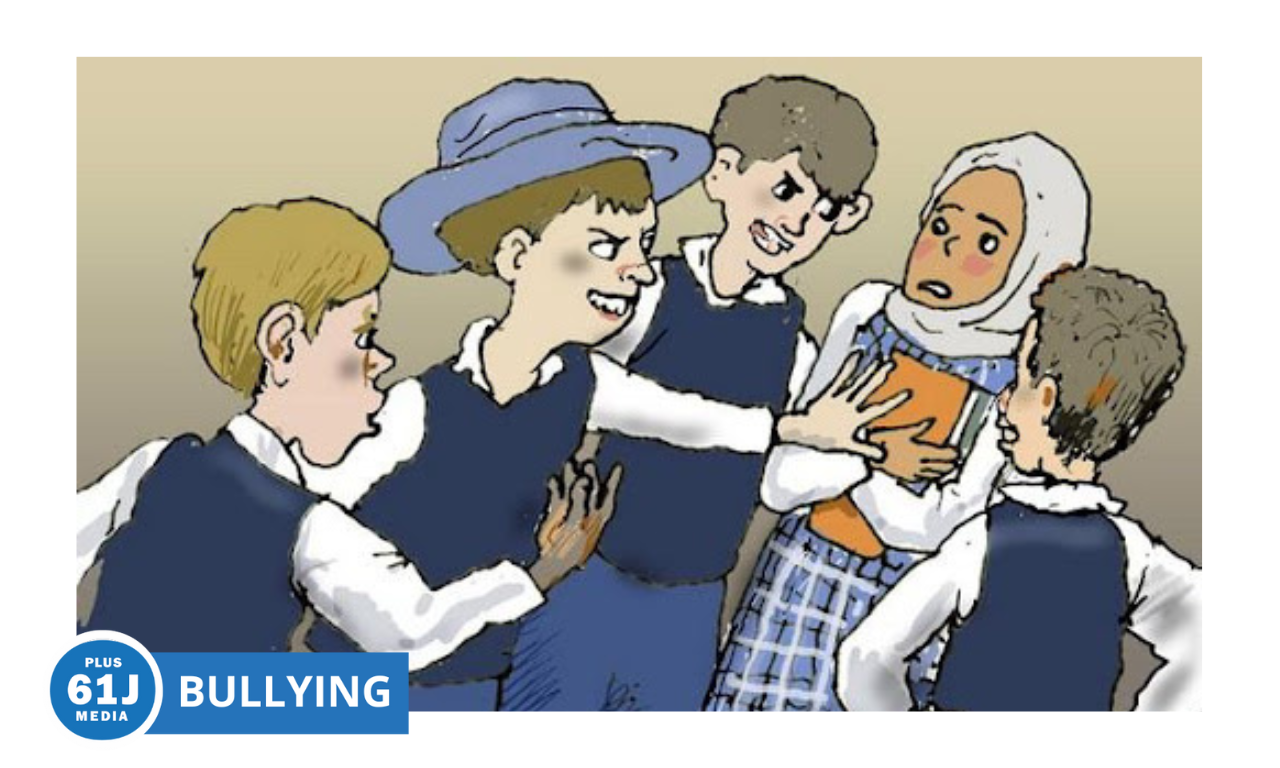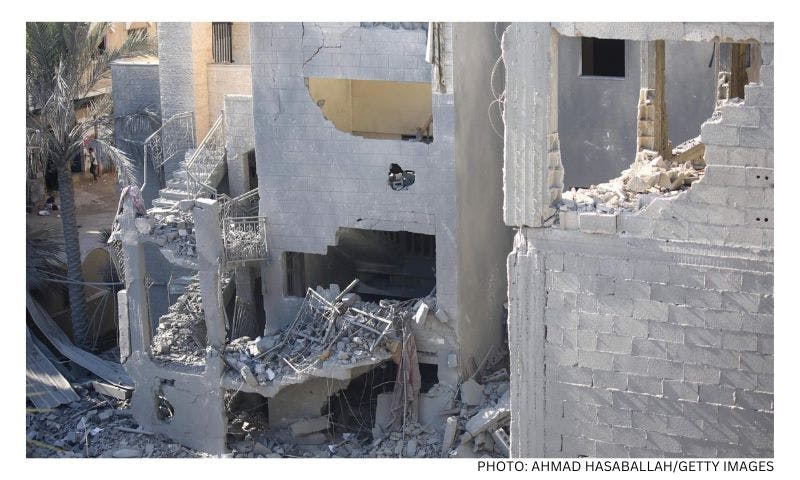Published: 29 October 2021
Last updated: 4 March 2024
MADDY BLAY and BEN WYATT: Debate over the IHRA definition of antisemitism shows how Jewish youth need education to sort half-truths from fair criticism about Israel
THE RECENT DISCOURSE surrounding the Australian government’s adoption of the International Holocaust Remembrance Alliance (IHRA) definition of antisemitism, the groups championing it, those opposing it and everything in-between has highlighted many things about the Australian Jewish community – diverse opinions, competing political interests and of course antisemitism itself.
Understanding the nuances of this complex topic should have yielded healthy, robust discussion across the political spectrum in the Jewish community and respect for different views, but that hasn’t been the case.
When the definition first came to light in 2016, many were quick to point out its possible productive role in defining and thus helping combat antisemitism around the world. However, this optimism was tarnished as it was swept up into the broader context of the Trump administration’s increasing opposition to Palestinian organisations and its support for a powerful right-wing agenda which entrenches the Occupation.
The manipulation of the definition by conservative Jews, something that the Evangelical Christian right quickly moved to support, prompted the author of the definition, Ken Stern, to write an article for the Guardian in 2019 to clarify its original intent as a way to monitor antisemitism in Europe, rather than as a “campus hate speech code”.
During the discussions in the Jewish community over the last week, since its adoption by the government, nothing has alarmed us as progressive Jews more than the number of people who seem so indiscriminately in favour of this definition.
The last thing we need when combatting antisemitism is a definition which has been weaponised in the defence of Israeli misdeeds.
In particular, our concern lies with the sentiments of some young people who increasingly conflate fair criticism of Israel with antisemitism. Israel has a right to exist, but like any other country, this right comes with responsibilities for good governance and fair treatment of its inhabitants.
The last thing we need when combatting antisemitism, especially in the context of rising domestic neo-Nazism, is a definition which has been weaponised in the defence of Israeli misdeeds.
The IHRA definition does not explicitly address the issue of whether criticism of Israel amounts to antisemitism, an omission that critics argue leaves the door open for a conflation of antisemitism and anti-Zionism that can suppress legitimate debate about Israel.
(For this reason, a group of scholars and historians this year drafted an alternative definition, known as The Jerusalem Declaration, which explicitly addresses when criticism of Israel does, or does not, cross the line into antisemitism.)
When mainstream Jews support a definition that is used to preserve the Occupation, we are reinforcing the fallacy that Jewish security requires Palestinian suffering. But we are also letting ourselves be duped into supporting bad policy because of a legitimate fear of antisemitism.
For many young Jews living in Australia today, beginning university can be daunting and the fact that antisemitism exists on many campuses only makes this more challenging. However, for many young people in the community, it is also their first encounter with serious, often exaggerated, criticism of Israel.
As young people are increasingly left unequipped by Jewish community institutions in offering nuance and clarification to these encounters, many are left with little recourse than to hide behind antisemitism as a shield for their Jewish and Zionist identities. Being a proud Jew and an active Zionist requires a more robust education than many of us will receive.
Regardless of one’s own view of the definition, recent events in the Australian Jewish community brought to light another nefarious trend which also needs attention: namely, the vilification and verbal abuse levelled at community members who criticise the Israeli government. In this case, the abuse has been against the New Israel Fund (NIF) for publicly voicing its concern about the IHRA definition.
When the Netanyahu government openly courted antisemitic governments in eastern Europe in the name of realpolitik, and when the Bennett government lists groups such as the Union of Agricultural Work Committees as terrorist organisations, the Australian Jewish community has been dangerously silent.
We need to be showing greater support for Israel’s civil society and the huge network of Israelis, and their supporters in the diaspora, who are fighting to preserve the country’s democracy.
As students who have faced our fair share of antisemitism at university, we appreciate the need for a clearer definition which would protect Australian Jewish youth, and stop the dog-whistling many antisemites use when they describe Israel using antisemitic tropes. But our community’s leading educational and cultural institutions are failing us, and especially our youth, in combatting this.
If we collapse discussions into 'are you for or against Israel?', we lose the ability to accurately identify, and call out, genuine antisemitism.
Antisemitism can’t be fought when young Jews are raised to believe that being a proud Jew means unwavering support for the Israeli government or binary distinctions between being pro- and anti-Israel as a test of loyalty.
Educating our community to understand the reality of modern Israel is essential to disentangle half-truths from fair criticism, and concerns for Israeli policy with antisemitic tropes. There is much work to do in Israel, from a struggling democracy, the militarisation of society, to continued discrimination against Reform Jews, queer Jews, women, Ethiopian Jews, Palestinian citizens and residents of the West Bank.
If we collapse discussions into “are you for or against Israel?” we lose the ability to accurately identify, and call out, genuine antisemitism.
Antisemitism exists - on the left, on the right, amongst centrists. It exists in schools, places of work, and cafes. The ability to combat it requires our community being astute enough to avoid being baited into media stunts by neo-Nazis.
It also requires us to be educated and proud enough in our identity as Jews to engage in meaningful debate about how modern Israel acts, often in our name. Hiding behind ignorant binaries and vilifying community members who seek nuance and clarity helps nobody except the extremists on both sides who desire to see a century-long war (from the sectarian riots of the 1920s) continue into the future.
READ MORE
British Jews outraged over Green Party's ‘contradictory’ definitions of antisemitism (Jerusalem Post)
My fellow progressives are always asking me if anti-Zionism is antisemitic. Here’s what I tell them (JTA)
MICHAEL VISONTAY & ANDREW WEST: Defining anti-Semitism can be more challenging than you think (ABC)
Photo: Australian Jewish youth on Shnatt (gap year) in Jerusalem, 2007




